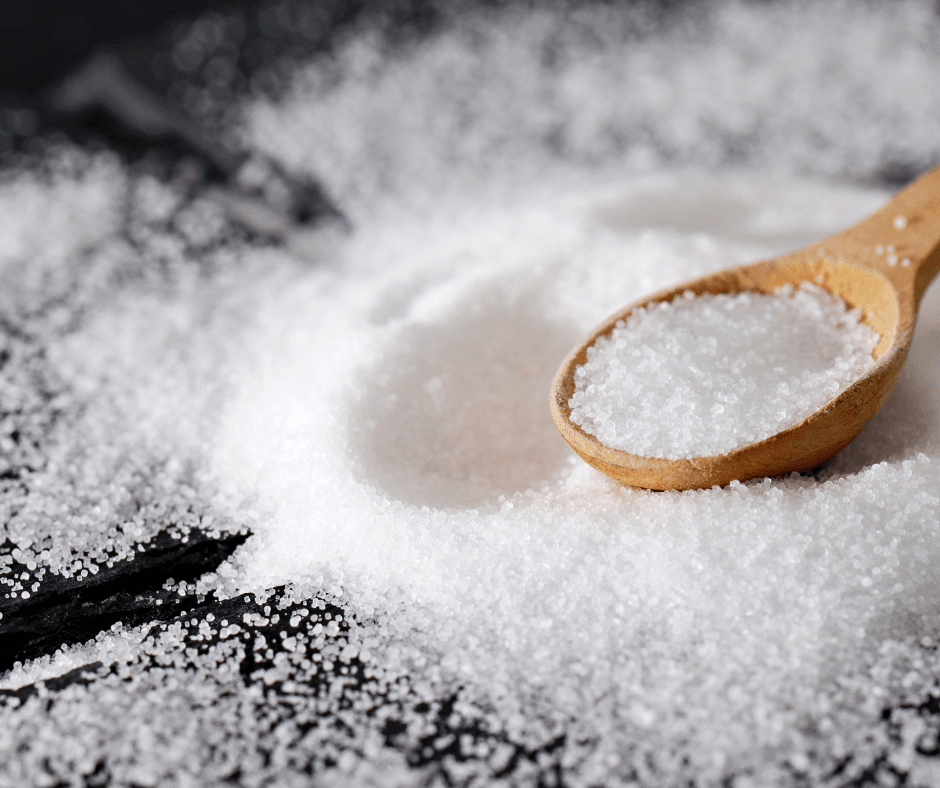Seasonings are a staple in every kitchen, adding flavor and complexity to a wide range of dishes. But with concerns about health and wellness on the rise, some may wonder: are seasonings bad for you? In this article, we’ll talk a bit about the impact seasonings can have on your health and see if they are good for you or not in your cooking.
Are Seasonings Bad for You? Breaking it Down
1. Salt: The Most Controversial Seasoning
Salt is one of the most commonly used seasonings, but it’s often criticized for its potential negative health effects. While salt is essential for the body in small amounts, excessive consumption is linked to high blood pressure, heart disease, and other health problems.

The recommended daily intake of salt is around 2,300 milligrams (about one teaspoon), but many people exceed this limit when consuming to processed foods and over-salting during cooking. Also, some seasoning blends sold in stores are simply just loaded with salt.
Our Anything Wings and Savory Delight are our low-salt seasoning blends, with Anything Wings being our low-sodium seasoning blend. Neither one of these seasonings has added sugars, chemicals, or preservatives.
Is salt bad for you? Like everything in life, not in moderation. But it’s crucial to be mindful of your sodium intake, especially if you’re prone to high blood pressure and other health conditions. As always, consult your doctor, and don’t take your medical advice from YouTube 🙄.

2. Sugar in Seasoning Blends
Many seasoning blends, particularly those crafted for grilling or marinating, contain added sugar. Seasonings like barbecue rubs, taco seasoning, and even some salad dressings may include sugar to enhance flavor. Overconsumption of sugar can lead to weight gain, increased blood sugar levels, and other health problems.
Is sugar in seasonings bad for you? When used in moderation, these blends can be enjoyed as part of a balanced diet. However, be cautious of excessive sugar intake from multiple sources.
3. MSG: A Misunderstood Ingredient – We Don’t Use It 🤮
Monosodium glutamate (MSG) is often used as a flavor enhancer in processed foods and seasoning blends. There is a lot of “MSG” debate online despite some sources claiming no harm comes from MSG in small amounts. Some people can have adverse reactions to MSG, as explained in this article from the Mayo Clinic.
Research has showed that MSG may cause headaches or other negative symptoms, scientific studies have shown that it is generally safe for most people. However, some individuals may be sensitive to MSG and experience mild reactions.
Is MSG bad for you? For most people, MSG is safe in moderation, but it’s always a good idea to listen to your body, your doctor, and medical professionals. WE DO NOT USE MSG in ANY of our products.
4. Herbs and Spices: Nutrient Powerhouses
On the flip side, herbs and spices like turmeric, ginger, garlic, and oregano offer numerous health benefits. Many of these seasonings are rich in antioxidants, have anti-inflammatory properties, and can help boost the immune system. For example, turmeric contains curcumin, which is known for its ability to reduce inflammation and improve joint health. Our Sweet and Spicy seasoning blend, Sweet Fire, contains turmeric, which also helps add beautiful colors to food.
Are NATURAL herbs and spices bad for you? Not at all! They’re some of the healthiest ingredients you can add to your meals. But always consult with your doctor. Also is worth noting that some people do have certain conditions and can’t consume certain herbs and spices.
The Role of Seasonings in Cooking
Seasonings, including herbs, spices, and blends, are used to enhance the flavor of food without adding significant calories or fat. If you’ve ever dined at a restaurant, chances are you’ve enjoyed dishes rich in salt and other seasonings.
Seasonings can transform bland dishes into savory, aromatic meals. Many seasonings also offer health benefits, such as anti-inflammatory and antioxidant properties.
However, not all seasonings are created equal, and some may raise concerns depending on their ingredients and how they’re used. Some brands simply use inferior ingredients, creating questions like, “Are seasonings unhealthy?” But again, the short answer is no. Look at our ingredients list; we use nothing but super spices and clean ingredients.
How to Use Seasonings for Healthier Cooking
1. Choose Low, Reduced or Less Sodium Alternatives
If you’re concerned about salt intake, opt for seasonings using less salt in their blends or use herbs and spices to flavor your food instead. Fresh garlic, lemon juice, and chili flakes can add a burst of flavor without relying on salt.
Also, cooking methods and techniques matter. Our article on healthier cooking tips can be a great resource to learn how to prepare food in smarter, healthier ways.
2. Read Labels on Blends and Sauces
When using store-bought seasoning blends, read the labels carefully. Look for added sugars, salt, and MSG, and choose options with minimal additives, preservatives, and artificial junk 😝. Opt for seasoning blends that are all-natural. Sure, you’ll pay a little more, but you are getting the real deal.
3. Experiment with Fresh Herbs
Fresh herbs like parsley, cilantro, basil, and thyme not only add flavor but also provide essential nutrients like vitamins A, C, and K. Try incorporating more fresh herbs into your cooking to boost both flavor and nutritional value. All of our seasoning blends are made with fresh herbs and spices.
Conclusion: Are Seasonings Bad for You?
Most seasonings are not bad for you—in fact, they can greatly enhance the flavor of your food without adding significant calories. All natural seasonings, made with pure herbs and spices, such as our line of seasoning blends, can bring many benefits to the table.
While certain seasonings like salt and sugar should be used mindfully, many herbs and spices offer health benefits that can improve your overall well-being. The key is to balance your seasoning use and choose healthier options when possible.






